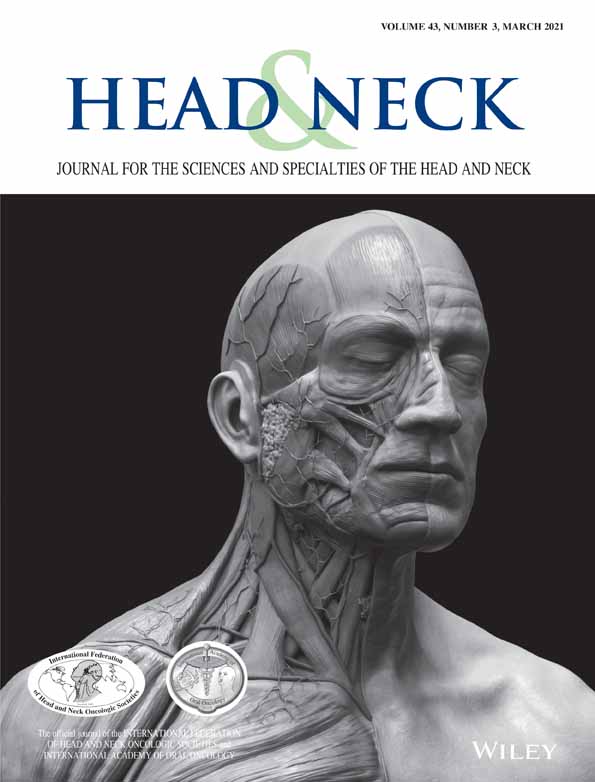Complication analysis of three different designs of temporary mandibulotomy in tongue cancer treatment
Funding information: Chang Gung University College of Medicine; Chang Gung Memorial Hospital
Abstract
Background
Mandibulotomy helps access posterior oral cavity tumors. If osteotomy designs affect postoperative and postradiotherapy complications, needs to be tested clinically.
Methods
Two hundred and eighteen patients who underwent midline mandibulotomy for primary tongue cancer wide excision and flap reconstruction at Chang Gung Memorial Hospital during 2014-2019.
Results
There were 114 straight, 54 notched, and 50 stair-stepped osteotomy cases. Stair-stepped osteotomy had less advanced tumor stages (P = .009) and notched osteotomy more common single-plate fixations (P = .012). The former showed higher mandibular heights (P = .000) and more intact midline teeth (P = .011) than notched and straight ones. Straight osteotomy cases showed lower early infection rates (P = .039). Single-plate fixation was related to more flap dehiscence (P = .001) and oro-cutaneous fistulas (P = .035).
Conclusions
Complex osteotomy does not offer long-term benefits in midline mandibulotomies for primary tongue cancers and has higher early infections. Single-plate fixation increases postoperative complications.
Open Research
DATA AVAILABILITY STATEMENT
The data that support the findings of this study are available from the corresponding author upon reasonable request.




